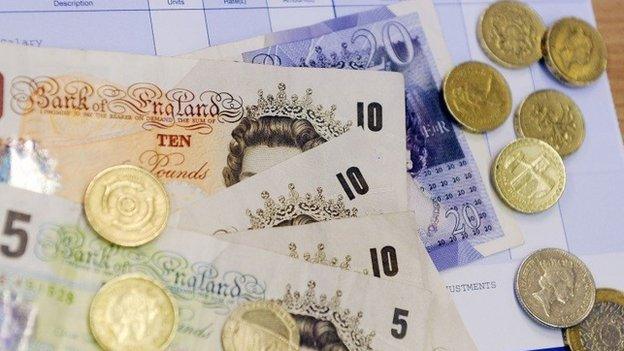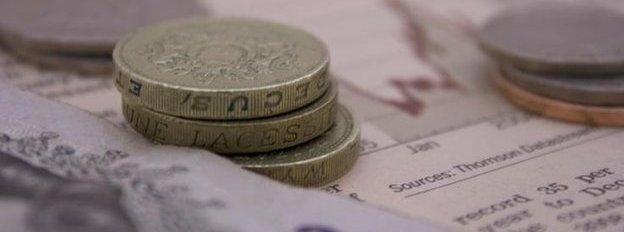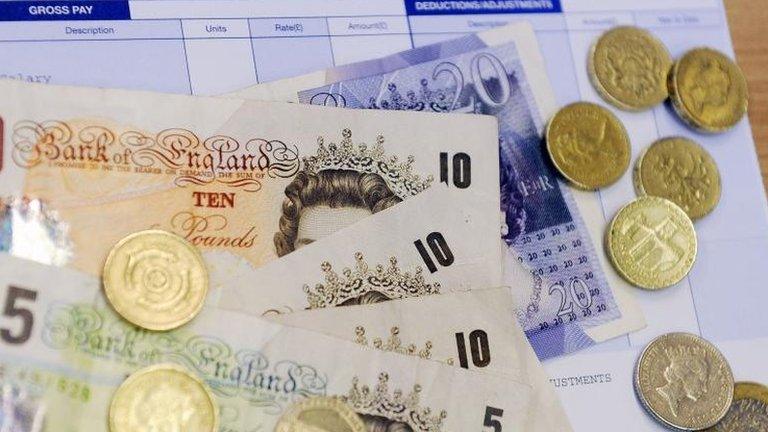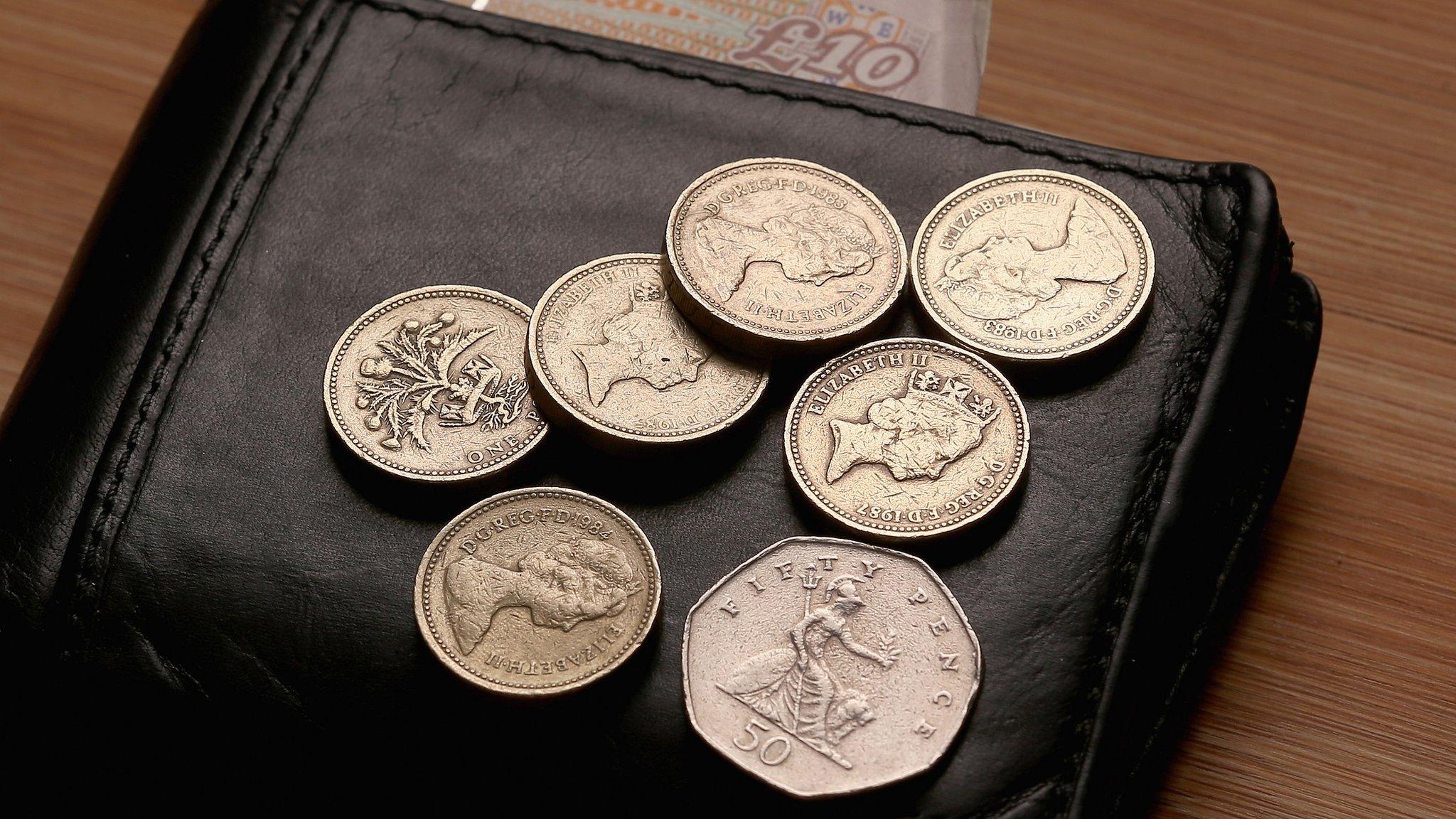Living wage rate increased by 40p an hour
- Published

The UK's voluntary living wage, as promoted by the Living Wage Foundation campaign group, is to be increased by 40p an hour.
The new rate will rise to £8.25 per hour, from its current £7.85.
For those living in London, the rate will rise by slightly less - 25p - to £9.40 an hour, the city's Mayor, Boris Johnson, announced.
More than 2,000 businesses, with almost 70,000 workers, are signed up to the scheme.
Currently, the government's national minimum wage stands at £6.70 per hour, but a new National Living Wage for over-25s of £7.20 will be introduced in April next year.
"Today we are celebrating those 2,000 responsible businesses that are voluntarily paying the living wage to their staff," said Sarah Vero, director of the Living Wage Foundation.
"These employers are not waiting for government to tell them what to do. Their actions are helping to end the injustice that is in-work poverty in the UK now," she added.
As with the government's minimum wage, employers have six months to implement the new pay level.
It follows a report on Sunday from accountants KPMG that claimed almost six million workers in the UK were paid less than the living wage, with part-time, female and young workers being most likely to earn below that figure.

Living wages: how does it add up?

The living wage is an informal benchmark, not a legally enforceable minimum level of pay. It will rise to £8.25 from £7.85. In London it is £9.15
The national minimum wage is the compulsory minimum level of pay set by the business secretary each year on the advice of the Low Pay Commission. It stands at £6.70 an hour for adults aged 21 and over, and £5.30 for those aged 18 to 20
In the last Budget the government announced a new compulsory National Living Wage that will come into force from April 2016. It will be paid to workers aged 25 and above. It will initially be set at £7.20 an hour and is intended to exceed £9 an hour by 2020
- Published1 November 2015

- Published1 September 2015

- Published1 April 2016
